 When the number of terms are odd, the middle term multiplred into itself will be equal to the two extremes, or any two means, equally distant from the mean : As 2, 4, 8, 16, 32, where 2X32=4X 16=8X8=64. When the number of terms are odd, the middle term multiplred into itself will be equal to the two extremes, or any two means, equally distant from the mean : As 2, 4, 8, 16, 32, where 2X32=4X 16=8X8=64.  Mercantile Arith - Page 131by Michael Walsh - 1831Full view Mercantile Arith - Page 131by Michael Walsh - 1831Full view - About this book
 | Daniel Parker - Arithmetic - 1828 - 358 pages
...81>11 16X4>=64 27X3^=81 8X8) 9X9) Five particulars are requisite equally in Geometrical Progression as in Arithmetical ; viz. 1. The first term. 2. The last term. 3. The number of terms. 4. The common difference, от ratio. 6. The sum of all .the terms. JVbte. — To find the last term in a... | |
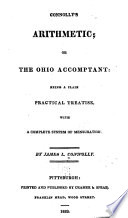 | James L. Connolly (mathematician.) - Arithmetic - 1829 - 266 pages
...2x32 = 64, and 4X16 = 64. The five things in arithmetical progression are to be pttstrved here also. 1. The first term. 2. The last term. 3. The number of terms. 4. The common difference, or ratio. 5. The sum of all the terms. As the last term, in a long series of numbers,... | |
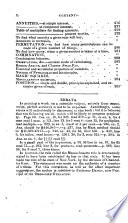 | Frederick Augustus Porter Barnard - Arithmetic - 1830 - 308 pages
...Arithmetical Progression. Any three of the five following terms being given, the other lico may be found. 1. The first term. 2. The last term. 3. The number of terms. 4. The ratio. 5. The sum of all the terms. 1. A man bought 5 sheep, giving $1 for the first ; $3 for the second... | |
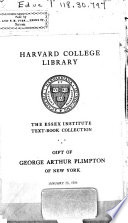 | Roswell Chamberlain Smith - Arithmetic - 1830 - 286 pages
...Progression there are reckoned 5 terms, any three of which beltig given, the remaining two may be found, viz. 1. The first term. 2. The last term. 3. The number of terms. The first term, the last term, and the number of termr-, being given, to und the common difference;... | |
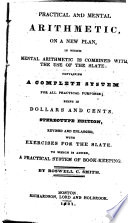 | Roswell Chamberlain Smith - Arithmetic - 1831 - 288 pages
...Arithmetic*. Pir» creaaiun, any three of them being given, the oihttr two may bo found, vift. 1. 77if 'first term. 2. The last term. 3. The number of terms. 4. The sum of all tht terms. 1. A man purchased n flock of sheep, consisting of 9 ; and, by agreement, was... | |
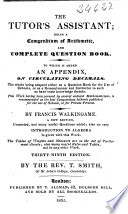 | Francis Walkingame - 1832 - 224 pages
...extremes, or any two means, equally distant from the mean, as 2, 4, 8, 16, 33, where 2X32 t4 XI 6=8X8=64. In Geometrical Progression the same five things are to be observed as are in Arithmetical. 1. The first term. 3. The last term. 3. The number of terms. i 4. The equal difference... | |
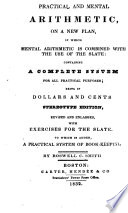 | Roswell Chamberlain Smith - Accounting - 1832 - 296 pages
...reckoned 5 terms, any three of which being given, the remaining two may be found, viz. 1. The ßrst term. 2. The last term. 3. The number of terms. 4. The common difference. 6. The sum of all the terms. The first term, the last term, and the number of terms,... | |
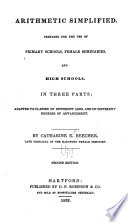 | Catharine Esther Beecher - Arithmetic - 1833 - 296 pages
...rules for finding them ? any three of the five following terms be given, the other two may be found. 1. The first term. 2. The last term. 3. The number of terms. 4. The common difference. 5. The sum of all the terms. 1. A man bought a piece of cloth containing 12 yards,... | |
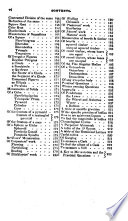 | James L. Connolly (mathematician.) - Arithmetic - 1835 - 264 pages
...terms, and the product will be the answer. The five things in progression are numbered as follows : 1. The first term. 2. The last term. 3. The number of terms. 4. The common difference. 5. The sum of all the terms. EXAMPLES. 1. How many strokes does a clock strike in... | |
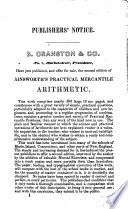 | Luther Ainsworth - Arithmetic - 1837 - 306 pages
...the series. Q. How many parts are always included in an arithmetical series ? «,* I A. Five parts, viz.: 1. The first term. 2. The last term. 3. The number of terms. 4. The common difference. 5. The sum of all the terms. Q. What is meant by the extremes of a progression ?... | |
| |